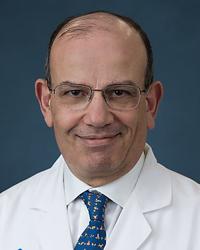Research Lab Results
-
Neuroimmunopathology Lab
The research activities of the Neuroimmunopathology Laboratory focus on studies of immunological and molecular mechanisms involved in the pathogenesis of neurological disorders. Our main areas of research include studies of neurological complications of HIV infection and AIDS, multiple sclerosis, transverse myelitis, autism and epilepsy. We seek to explore and identify immunopathological mechanisms associated with neurological disease that may be the target of potential therapeutic interventions. The laboratory collaborates with other researchers and laboratories at Johns Hopkins and other institutions in projects related with studies of the interaction between the immune and central nervous systems in pathological processes leading to neurological dysfunction.
-
Hoffmann Lab
The Hoffmann Lab is focused on reducing TB and HIV morbidity and mortality in the low and middle income settings through behavioral and implementation science approaches. Work has focused on understanding individual-level behavior towards linkage to care and continued care engagement for HIV and TB and using this knowledge to develop approaches to increase HIV testing, linkage to care, HIV viral load suppression, and retention in care. Other work has focused on health system strategies to improve service delivery and improve adherence to best practice to guidelines-based care. The group's research includes work on the general population, corrections inmates and ex-inmates, men at risk for HIV, and recently hospitalized individuals. Most of the research has been in South Africa and elsewhere in sub-Saharan Africa.
-
Brain Health Program
The Brain Health Program is a multidisciplinary team of faculty from the departments of neurology, psychiatry, epidemiology, and radiology lead by Leah Rubin and Jennifer Coughlin. In the hope of revealing new directions for therapies, the group studies molecular biomarkers identified from tissue and brain imaging that are associated with memory problems related to HIV infection, aging, dementia, mental illness and traumatic brain injury. The team seeks to advance policies and practices to optimize brain health in vulnerable populations while destigmatizing these brain disorders. Current and future projects include research on: the roles of the stress response, glucocorticoids, and inflammation in conditions that affect memory and the related factors that make people protected or or vulnerable to memory decline; new mobile apps that use iPads to improve our detection of memory deficits; clinical trials looking at short-term effects of low dose hydrocortisone and randomized to 28 days of treatment; imaging brain injury and repair in NFL players to guide players and the game; and the role of inflammation in memory deterioration in healthy aging, patients with HIV, and other neurodegenerative conditions. -
Haughey Lab: Neurodegenerative and Neuroinfectious Disease
Dr. Haughey directs a disease-oriented research program that address questions in basic neurobiology, and clinical neurology. The primary research interests of the laboratory are: 1. To identify biomarkers markers for neurodegenerative diseases including HIV-Associated Neurocognitive Disorders, Multiple Sclerosis, and Alzheimer’s disease. In these studies, blood and cerebral spinal fluid samples obtained from ongoing clinical studies are analyzed for metabolic profiles through a variety of biochemical, mass spectrometry and bioinformatic techniques. These biomarkers can then be used in the diagnosis of disease, as prognostic indicators to predict disease trajectory, or as surrogate markers to track the effectiveness of disease modifying interventions. 2. To better understand how the lipid components of neuronal, and glial membranes interact with proteins to regulate signal transduction associated with differentiation, motility, inflammatory signaling, survival, and neuronal excitability. 3. To understand how extracellular vesicles (exosomes) released from brain resident cells regulate neuronal excitability, neural network activity, and peripheral immune responses to central nervous system damage and infections. 4. To develop small molecule therapeutics that regulate lipid metabolism as a neuroprotective and restorative strategy for neurodegenerative conditions. -
IndoUS Clinical Research
Our IndoUS team, based both in Baltimore and in India, specializes in international clinical research (cohort studies and clinical trials), public health implementation science and education in infectious diseases, HIV/AIDS, tuberculosis (TB), vaccine preventable illnesses, antimicrobial resistant infections, and more recently COVID. Since 2003, our work has been focused primarily on India, where we are engaged in several Indo-JHU and international research collaborations. We partner with several leading medical and research institutions in India (e.g. BJGMC, DY Patil, Hinduja Hospital, KEM, Bharati Vidyapeeth, NIRT, JIPMER, CMC, Medanta, IISER, YRG, IIT), as well as others in sub-Saharan Africa, US and Brazil. We are actively involved in the following consortia: 1) Indo-US Vaccine Action Program sponsored RePORT India TB research consortium, which is funded by the US National Institutes of Health (NIH) and the government of India, Department of Biotechnology. 2) RePORT International TB Research Consortium, a multilateral global consortia for TB research, 3) US NIH funded multi-country HIV and TB trials consortia of the AIDS Clinical Trials Group (ACTG) and the International Maternal Pediatric Adolescent AIDS Trials Network (IMPAACT) Network, 4) NIH and AmFAR funded IeDea HIV/TB Working Group and the Treat Asia-IeDEA HIV and TB epidemiology databases, and 5) CDC SHEPHERD AMR studies. Our group has been awarded research grants from the US NIH, US CDC, UNITAID, Indian government, and several philanthropic foundations to investigate infectious diseases of importance to India and beyond.
-
Mohamed Atta Lab
Dr. Atta and his research team explore the epidemiological and clinical interventions of a variety of kidney diseases. Our goal is not only to advance the understanding of many kidney diseases but also to capitalize on novel discoveries of basic science to treat a wide range of rare and common kidney disorders.
- Multi-international observational study of a rare form of amyloid (LECT2 amyloid) to understand its natural history with the ultimate interest of treating this condition.
- Our group has launched a project investigating the impact of COVID19 on the kidney to identify risk factors influencing outcome across different clinical phenotypes
- In collaboration with the Division of Infectious Diseases and the School of Public Health, our research has focused on the epidemiology of HIV and kidney disease. We also study clinical markers and contributing factors in the progression of kidney disease, and the association between kidney disease and heart disease.
- Our research group is participating in a multicenter consortium serving as a clinical core site to study the pathogenesis of HIV-associated kidney disease by providing well-characterized clinical specimens and corresponding clinical and laboratory data.

-
Maunank Shah Lab
Work in the Maunank Shah Lab focuses on infectious disease modeling and health economics, and seeks to investigate new strategies for diagnosing HIV and tuberculosis (TB) in areas with limited resources, both domestically and abroad. Our primary focus is TB diagnostics, with studies examining the diagnostic test accuracy, cost-effectiveness and programmatic impact of emerging diagnostics. We have developed mobile health initiatives to incorporate video-based therapy for TB treatment, and we have a longstanding interest in interventions that help to reduce or prevent HIV transmission. -
Marvel Cognitive Neuropsychiatric Research Laboratory
The Cognitive Neuropsychiatric Research Laboratory (CNRLab) is part of the Division of Cognitive Neuroscience within the Department of Neurology at the Johns Hopkins University School of Medicine. Its current projects include investigating the motor system's contribution to cognitive function; HIV-related neuroplasticity and attention-to-reward as predictors of real world function; and brain function and cognition in Lyme disease. -
Thomas Quinn Lab
Research in the Thomas Quinn Lab encompasses epidemiology, pathogenesis and clinical features of HIV/AIDS internationally, which includes the interaction between STDs and tropical diseases on the natural history and spread of HIV/AIDS in developing countries. Our recent research has examined the viral kinetics and transmission probabilities of HIV among discordant couples with the subsequent design and application of interventions, including therapy to prevent transmission of HIV. Molecular studies have mapped the molecular epidemic of HIV on a global basis, linking virologic changes to the spread of HIV and measuring the demographic impact of the epidemic.
-
Todd Brown Lab
The Todd Brown Lab focuses on metabolic, endocrine and skeletal abnormalities in HIV-infected patients, particularly as these factors relate to aging. Our studies take an epidemiologic approach to understanding the occurrence and prevalence of insulin resistance, diabetes, and anthropometric changes in HIV patients and their relationship to antiretroviral treatment.


